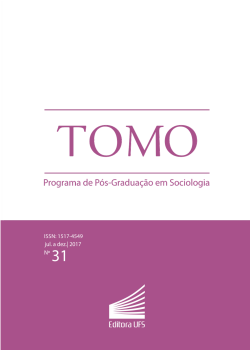Rethinking Police Violence in Brazil: Unmasking the Public Secret of Race
DOI:
https://doi.org/10.21669/tomo.v0i0.7648Abstract
In Brazilian cities, perhaps the most disturbing criminal activity is the violence perpetrated by police officers themselves. This article is an invitation and a provocation to reconsider social scientific thinking about police violence in Brazil. Illustrated by a court decision from a Northeastern city, in which a black man won a case against the state for being falsely arrested and abu- sed by a black police officer on the grounds of racism, this article investigates three paradoxes: Brazilians fear both crime and the police; black police beat black civilians; and government offi- cials disavow responsibility by stigmatizing the police on racial grounds. It then proposes an alternative reading of these para- doxes that opens the possibility for rethinking police reform and argues that democratization in Brazil is deeply intertwined with the future of its darkest-skinned citizens.
Downloads
Downloads
Published
How to Cite
Issue
Section
License
TOMO journal adopts the Creative Commons CC-BY 4.0 license which allows:
• Share: copy and redistribute the material in any medium or format.
• Adapt: remix, transform, and create from the material for any purpose, even commercial.
Authors who publish in this journal agree to the following terms:
a) Authors retain copyright and grant the journal the right of first publication, with the work simultaneously licensed under the Creative Commons which allows sharing the work with acknowledgment of authorship and initial publication in this journal.
b) Authors are authorized to assume additional contracts separately, for non-exclusive distribution of the version of the work published in this journal (eg, publishing in an institutional repository or as a book chapter), with acknowledgment of authorship and initial publication in this journal.
c) Authors are allowed and encouraged to publish and distribute their work online (e.g., in institutional repositories or on their personal page) at any point before or during the editorial process, as this can generate productive changes, as well as increase the impact and citation of the published work (O Efeito do Acesso Livre).







 The manuscripts from thsi journals are licenced by CC BY.4.0.
The manuscripts from thsi journals are licenced by CC BY.4.0. 